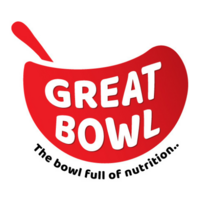Do you really need supplements — or can food be enough? by Dr. Dee | Feminine Systems
Walk into any wellness store, and you’ll find rows of bottles promising better energy, glowing skin, sharper memory, deeper sleep, and perfect cycles — all packaged into pills.
In a post-pandemic world, supplementation is no longer a niche. It’s a culture.
But as both a gynaecologist and a food systems designer, I’m here to ask: Do you really need all those supplements? Or can food still do the job?
Let’s separate the hype from the evidence.
Let’s find the intersection between ancestral eating and precision nutrition.
The Short Answer: It Depends
There is no universal yes or no. What matters is:
- Your metabolic state
- Your gut absorption
- Your lifestyle (urban, sedentary, breastfeeding, perimenopausal, etc.)
- And whether your food system is actually nutrient-rich or calorie-dense and hollow
And most importantly it’s also based on your objective, duration and sustainability.
What the Latest Science Says
1. For the General Population: Whole Food First
A 2022 global review in The Lancet Regional Health concluded that most essential nutrients (iron, zinc, B12, folate, vitamin D) can be met through food — but only if the diet is whole, diverse, and seasonal. Problem is, most modern diets aren’t.
- Urban women are increasingly low in magnesium, iron, and B-vitamins
- Vitamin D deficiency affects 70–90% of Indian adults, regardless of diet
- Soil depletion and industrial processing strip key nutrients before they even reach our plates
So while the body prefers food-based nutrition (bioavailability is higher), the reality is: Our food is no longer what it used to be.
2. For Women in Specific Life Stages — Supplements Are Often Necessary
a) Preconception & Pregnancy
- Folic acid, iron, vitamin D, omega-3s, and sometimes iodine and choline are critical.
- A 2023 Cochrane review affirmed that prenatal supplementation with folic acid reduces neural tube defects by over 70%.
- DHA improves fetal brain development, and iron supplementation reduces the risk of preterm birth and maternal anemia.
Dr. Dee’s Note:
Don’t wait for pregnancy to begin supplementation. Begin 3–6 months before conception for optimal outcomes — or better, through a food-as-ritual protocol backed by testing.
b) PCOS, Insulin Resistance, and Hormonal Disorders
- Supplements like myo-inositol, magnesium, and vitamin D have shown clear benefit in reducing insulin resistance and androgen excess.
- A 2023 meta-analysis (Reproductive Biology and Endocrinology) found myo-inositol to be as effective as metformin in improving ovulation with fewer side effects.
But… these are not meant to replace food — they are meant to support systems that are already dysregulated.
c) Postpartum & Lactation
- Iron, calcium, B12, omega-3s, and vitamin D are frequently depleted.
- A 2024 study in Nutrients reported that over 60% of breastfeeding mothers were deficient in zinc and B-complex, affecting milk quality and energy.
- Herbal adaptogens like shatavari and moringa are being re-evaluated in clinical trials for their postpartum endocrine support — but require guidance.
d) Menopause & Beyond
- Calcium + vitamin D, magnesium, vitamin K2, and omega-3s can help reduce bone loss and inflammation.
- A 2021 RCT (Menopause Journal) found that a combination of magnesium + K2 improved bone mineral density more than calcium alone.
The Food vs. Pill Debate: It’s Not Either-Or.
When Food May Not Be Enough:
- You have gut absorption issues (IBS, low stomach acid, post-antibiotics)
- You are vegan/vegetarian and at risk of B12, iron, and omega-3 deficiency
- You live in urban environments with low sunlight exposure (hello, vitamin D3)
- You are postnatal, recovering, or highly stressed (higher nutrient burn rates)
In such cases, supplementation isn’t luxury. It’s restorative scaffolding.
What I Recommend as an Integrative Gynaecologist
- Test, Don’t Guess
Run regular panels — vitamin D, B12, ferritin, magnesium, homocysteine — to map your needs, not follow fads. - Ritualize Food First
Your meals should reflect your phase of life, hormonal rhythm, and healing window. Use food as your first line of defense and restoration. - Use Supplements as Precision Tools, Not Crutches
Not all supplements are created equal. Many contain binders, fillers, and synthetic isolates.
Opt for:- Food-based or bioavailable formats (e.g., methylated B12, ferrous bisglycinate, liposomal D3)
- Clean-label brands
- Short-term therapeutic dosing cycles followed by maintenance through food
- Use Local Superfoods as Functional Supplements
- Moringa powder for iron and vitamin A
- Sesame paste for calcium and zinc
- Amla for vitamin C
- Ragi & gond for postpartum recovery
- Sprouted pulses for B-complex
- Kokum, curry leaves, and turmeric for inflammation and liver support
No supplement can compensate for a life lived in disconnect — from body, rhythm, or food. But in today’s world, strategic supplementation can bridge the gap between depletion and vitality.
The question isn’t “food or supplements?” It’s: “What does your body need to remember its balance?”
Begin with the bowl. Support with science. Honor the system.
